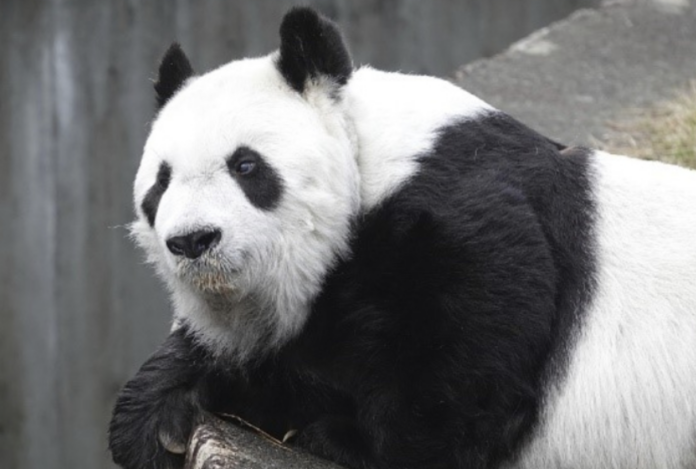BEIJING, April 2 – Giant panda Shuang Shuang, who had been living in Japan’s Kobe Oji Zoo, died of heart disease on Sunday, according to an official announcement from the China Wildlife Conservation Association. She was 28.
The female panda, called Tantan in Japan, was born in September 1995. The statement said she suffered from acute heart failure, and her condition had deteriorated recently. Though experts from China and Japan spent several days trying to treat her, her condition did not improve, and she died at 11:56 pm on Sunday.
In human years, she was roughly 100 years old, experts say.
Shuang Shuang had been residing in Japan since July 2000 and was diagnosed with age-related heart disease during a routine check-up three years ago.
According to the giant panda cooperation agreement signed between China and the Kobe government in Japan, Shuang Shuang was supposed to return to China in July 2020. However, due to the COVID-19 pandemic, the return date was postponed to the end of 2021.
This was further delayed due to her medical diagnosis.
“After the diagnosis of heart disease, experts from both China and Japan quickly organized a joint team for treatment, providing careful nursing care, which led to some degree of relief in Shuang Shuang’s condition.
“In order to stabilize her condition and aid her recovery, and considering the global pandemic, both China and Japan developed a rigorous treatment plan that lead to multiple postponements of Shuang Shuang’s return to China, to avoid worsening her condition due to long-distance transportation,” the association’s announcement stated.
Giant pandas are native to China and are classified as a first-class protected wildlife species, often referred to as national treasures. They are beloved by people around the world. Since the 1990s, China has collaborated on giant panda conservation efforts with 26 institutions in 20 countries.
















